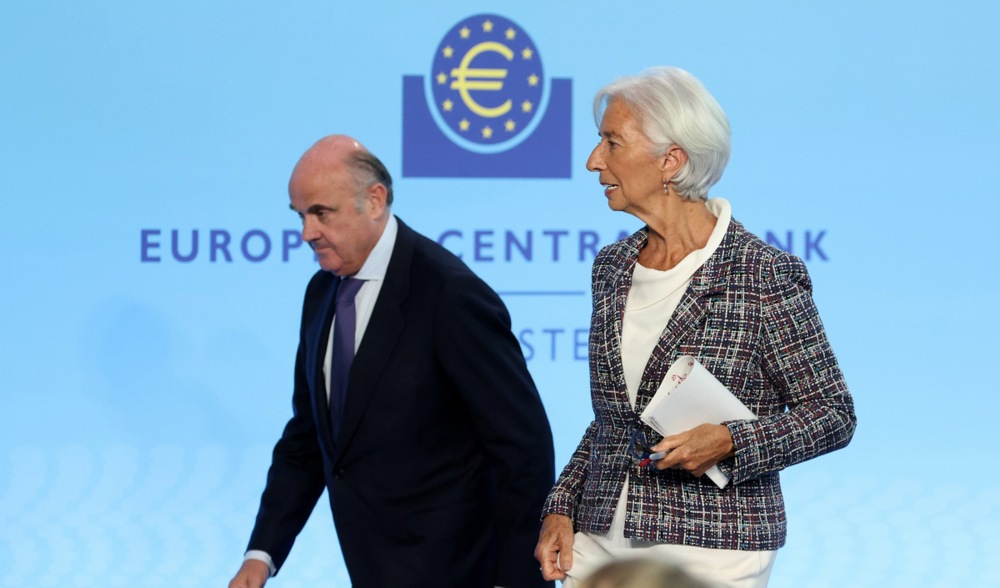European banks could soon use AI not just to catch fraud — but to stop it before their clients even hit “send”.
A May 2025 study requested by the European Parliament has proposed setting up AI systems that watch payment behaviour in real time and stop transfers deemed suspicious before they are approved.
The study noted that European banks trailed behind their US peers and fintech start-ups in tech-driven fraud prevention, even as payment fraud incidents across the bloc have surged in recent years.
These tools would run inside banks under “regulatory sandboxes” — that is, under a closed testing environment — overseen by European Union authorities.
They would work alongside the existing name-check rule, which required banks to verify that a recipient’s name matched their International Bank Account Number (IBAN) before completing a transfer.
That rule — called Verification of Payee — was set to become mandatory across the eurozone this October, with some member states including Belgium aiming to roll it out sooner.
The Payment Services Directive 2, known as PSD2, was the EU rulebook that since 2018 has asked banks to open their payment infrastructure to outside providers and strengthen customer authentication. PSD2 introduced the idea of a name-check for transfers but left each country to decide for themselves how and when to apply it.
Now PSD3, still under negotiation, would tighten those rules, make the name-check requirement uniform across all EU banks and require it to happen in real time.
Under PSD3, any mismatch between name and IBAN must trigger a warning or pause before execution. PSD3 would also clarify who was liable and how data was shared when a check failed.
Because PSD2 became law in each member state, Belgium could choose to start verification of payees ahead of the EU-wide deadline. Its regulator would simply set a local rollout date earlier, so Belgian banks could be adapting their IT systems sooner.
Verification of Payee was an EU regulatory requirement under PSD2 that member states had to implement in their national laws. PSD3 would build on that by making real-time checks mandatory and fully harmonised across all EU banks.
The study argued that checking names was not enough. It said that left a blind spot when fraudsters used a genuine IBAN and name combination.
“AI tools could assess transaction behaviour dynamically at the point of payment initiation, identifying anomalous patterns before approval,” the report stated.
Under the proposal, a bank’s AI would analyse factors such as how often the sender paid into an account, typical payment amounts and whether the recipient had a history of suspicious transfers. If a pattern looked suspect — a sudden large payment to an account with no previous activity, for example – the system could pause or block the transfer.
Banks would still be responsible for executing payments but under this model, the final “go” could depend on a machine’s analysis, not just on what the user entered. A transfer that was correctly filled out and authorised by the customer might still be stopped by the AI system if it detected something possibly amiss.
The study was drafted by experts for the European Parliament’s Industry, Research and Energy Committee. It formed part of a wider review of how to strengthen EU banks against global competition.
European banks have lagged behind US rivals and fintechs when it came to tech-driven fraud prevention, the authors warned.
The European Commission was expected to respond later this year. If Brussels backed the plan, AI-driven fraud prevention could be written into EU rules instead of left to individual banks.
This would represent a shift from reactive fraud detection to proactive prevention. Today, banks often spotted scams only after money was already gone. Under the new plan, a smart system could stop fraud before it happened.
For ordinary customers, this could be safer but might also introduce other issues. Even a fully correct transfer —name, IBAN and amount — might be delayed or blocked if the AI flagged it as risky.
But the report also painted a picture of the future where banks no longer relied solely on simple checks and instead of just matching names, they could assess behaviour, history and context.





